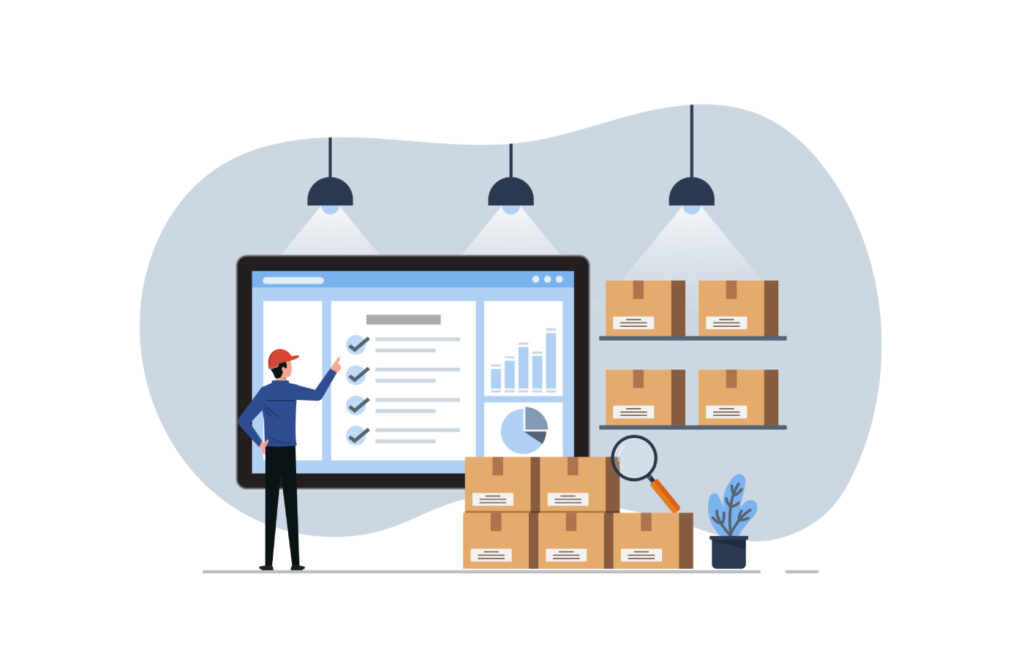Key Takeaways
- CRM automation lets users save time by processing information and completing sales tasks automatically without the need to enter data, assign tasks or transfer information manually.
- Automating CRM tasks enables salespeople to be more productive because they don’t have to complete time-consuming and repetitive tasks manually — allowing them to close deals more efficiently and increase revenue.
Companies use customer relationship management (CRM) systems to organize business processes and make it easier for users, including sales representatives, to perform complex activities. CRM systems help organizations support the efforts of marketing teams, manage customer data, deliver insights leaders can use to make better business decisions, help with customer support, and integrate with sales to boost customer satisfaction. The right CRM automation can make that job even easier.
Sales representatives use CRM systems, in part, to schedule their daily activities and manage their tasks to ensure they’re paying attention to important customers and contacting prospects on time. Typically, they perform these and other time-consuming and repetitive tasks, such as entering data as well as updating contacts, leads and opportunities, manually.
However, they don’t have to handle these tasks manually. Rather, sales people can facilitate and/or complete them through CRM automation.
ALSO READ: How to Use a CRM for Business: A Complete Guide (2023)
What is CRM automation and what are its benefits?
CRM automation is the process of automating manual, repetitive tasks so sales reps can better track and manage their efforts to engage with prospects as well as current customers. There are a number of other benefits to CRM automation, including:
Increased productivity
In addition to automating these repetitive sales processes and giving sales reps the time to focus on more strategic activities, CRM automation enables sales teams to improve their decision-making strategies using advanced analytics. Automation also makes it easier for sales and marketing teams to collaborate so that they can access and share the content and technology necessary to reach more customers and prospects and close more deals.
Better customer engagement
CRM automation can help sales people more effectively increase conversion rates by customizing their communications to fit the current stage of each customer’s journey. For example, although an email may be the right communication method for a customer in the early stages of the sales process, a phone call might be more appropriate for an individual who’s closer to making a purchasing decision.
Enhanced customer satisfaction
CRM systems can automatically log customer communications, including email interactions, telephone calls and form submissions, to help sales reps ensure that they identify and address customer issues promptly.
Shorter sales process
Automating the steps in the sales process allows sales reps to spend more time communicating with and selling to customers and prospects and less time on repetitive administrative tasks. This shortens the sales process by streamlining certain tasks, helping users save time and energy, be more productive and close more deals.
ALSO READ: Using CRM for Customer Engagement

The five most useful CRM automations
CRM software enables sales teams to automate any number of functions. Here are the top five most useful CRM automations:
Contract record management
Automating this function allows sales reps to automatically create, edit and organize sales data within the CRM database. This includes customers, leads, accounts, partners, and any other entities where sales reps would keep identifiable information, e.g., names, organizations, addresses, telephone numbers, social media accounts, email addresses.
Automating contract record management means sales reps don’t have to enter any of this data manually since the system does the work. Manually managing and tracking the contract process slows the sales cycles.
Automating the process, however, will enhance the sales cycle as it gives sales reps full visibility and control over their business contracts from initiation to renewal, saving them time and keeping them organized. Automating contract record management gives sales people control over their contracting processes and also simplifies contract management to help companies save time and money.
Lead management
Lead management helps sales reps identify, analyze and monitor incoming leads so that they can convert them into customers. However, managing and nurturing leads manually takes a lot of work. But automating lead management in a CRM system helps users save time and effort trying to generate worthwhile leads.
CRM lead management brings leads from multiple channels into the CRM system, directs them through the qualifying and nurturing processes, then gives those leads to the sales people to convert them into paying customers. CRM lead management can boost the efficiency of virtually every sales team member by making them better at converting their leads and closing deals.
Using CRM software to automate lead management is critical because it ensures sales reps are pursuing and tracking worthwhile leads, moving them through the sales pipeline and making those all-important sales.
Opportunity management
This automation deals with an opportunity, i.e., a deal that’s in progress. Anytime a sales rep is actively selling to a customer, they’ll want to create an opportunity to track and manage the sales process. Automation enables sales reps to eliminate the manual repetitive tasks, such as manually entering leads and duplicate data entry, that have to do with managing sales opportunities in the CRM system.
From first contact to closing the deal, automation streamlines opportunity management and makes it more effective as all the necessary information is recorded automatically in the CRM system. Additionally, automation brings all that information together in one place, ensuring that each sales rep gets a 360-degree view of all the information that pertains to a specific opportunity so they can make an informed decision about that opportunity.
Automating opportunity management helps users manage their sales opportunities effectively so they can convert these opportunities into revenue.
Email tracking
Email tracking capability built into a CRM system alerts a sales rep when someone has opened or clicked through one of their emails. In addition, this feature provides data as to how many times recipients clicked a certain link, forwarded or archived it without reading it. Automating email tracking means sales people don’t have to manually send and track emails and then manually collect actionable data from those efforts.
Automating emails cuts down on the many hours that sales reps would otherwise spend crafting emails and remembering to send them out on time. And because email tracking lets sales reps know which customers and prospects opened and engaged with their emails and which did not, they’re able to target the interested customers and prospects with more effective communications in the future.
Task management
With the task management feature in their CRM systems, sales reps can create, view, assign and monitor tasks relating to the sales activities that they have to complete. This feature provides sales people with a quick overview of what they need to do and lets them set deadlines to complete those tasks.
Task management tracks tasks in real time, helping sales reps stay on schedule. Reps can use task management to organize tasks in order of importance and keep track of the tasks that they’ve completed without having to track them manually. This feature allows sales reps to stay on top of critical tasks, automate recurring tasks and assign tasks to other team members.
ALSO READ: CRM vs. Marketing Automation: How are they different?
In summary
CRM automation lets users save time by processing information and completing sales tasks automatically without the need to enter data, assign tasks or transfer information manually. Automating CRM tasks enables salespeople to be more productive because they don’t have to complete time-consuming and repetitive tasks manually — allowing them to close deals more efficiently and increase revenue.
Looking for the latest in CRM solutions? Check out our CRM Software Buyer’s Guide.
FAQ: CRM Automation
What is CRM Automation?
CRM automation is the process of automating manual, repetitive tasks so sales reps can better track and manage their efforts to engage with prospects as well as current customers.
What are the benefits of CRM Automation?
There are a number of other benefits to CRM automation, including increased productivity, better customer engagement, increased customer satisfaction, and a shorter sales process.





